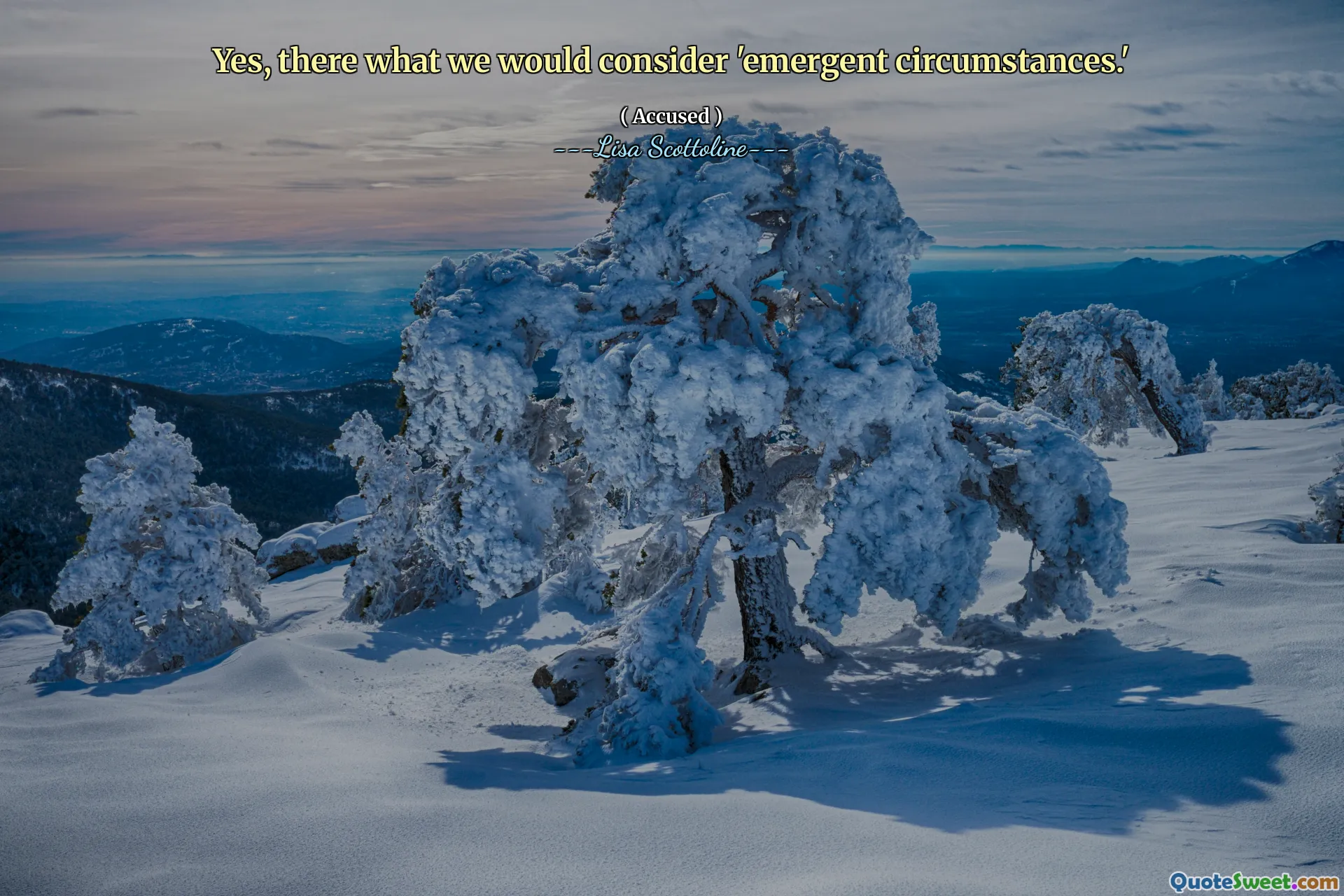
Yes, there what we would consider 'emergent circumstances.'
This quote succinctly encapsulates a common situation in both personal and professional contexts where unplanned, urgent events arise that require immediate attention. The use of the phrase 'emergent circumstances' indicates a recognition of conditions that are unexpected yet necessitate a prompt and effective response to prevent potential negative outcomes. It reflects an awareness that not all situations can be anticipated or controlled, highlighting the human experience of adapting to change and uncertainty.
In reflecting on this statement from the book "( Accused )" by Lisa Scottoline, one can appreciate the layers of complexity that emergent circumstances introduce into decision-making processes. Such moments often test resolve, flexibility, and ethical judgment, particularly in high-stakes environments like legal cases, medical emergencies, or crisis management settings. The quote subtly reminds us that life is replete with unforeseen challenges, and the ability to acknowledge and respond to these situations thoughtfully is crucial.
Additionally, the phrasing 'what we would consider' suggests a shared understanding or a framework within a particular community or professional field for defining what constitutes an emergent circumstance. This points to the importance of clear communication and agreed-upon criteria in handling urgent issues effectively. Overall, this statement captures the essence of navigating unpredictability with preparedness and collaboration, themes that resonate deeply across many facets of life.






